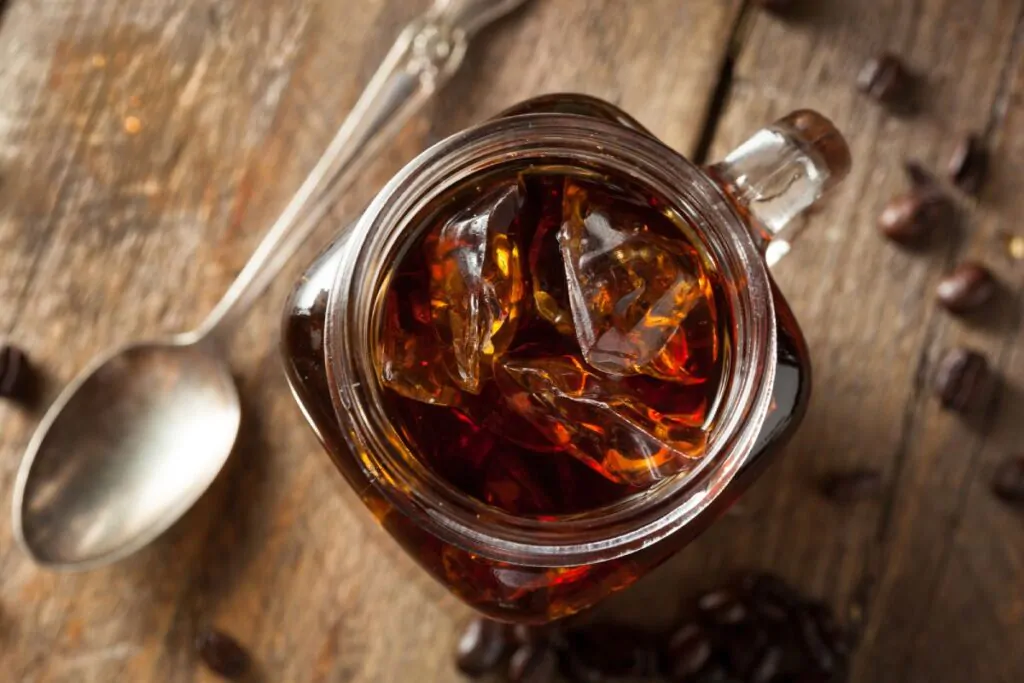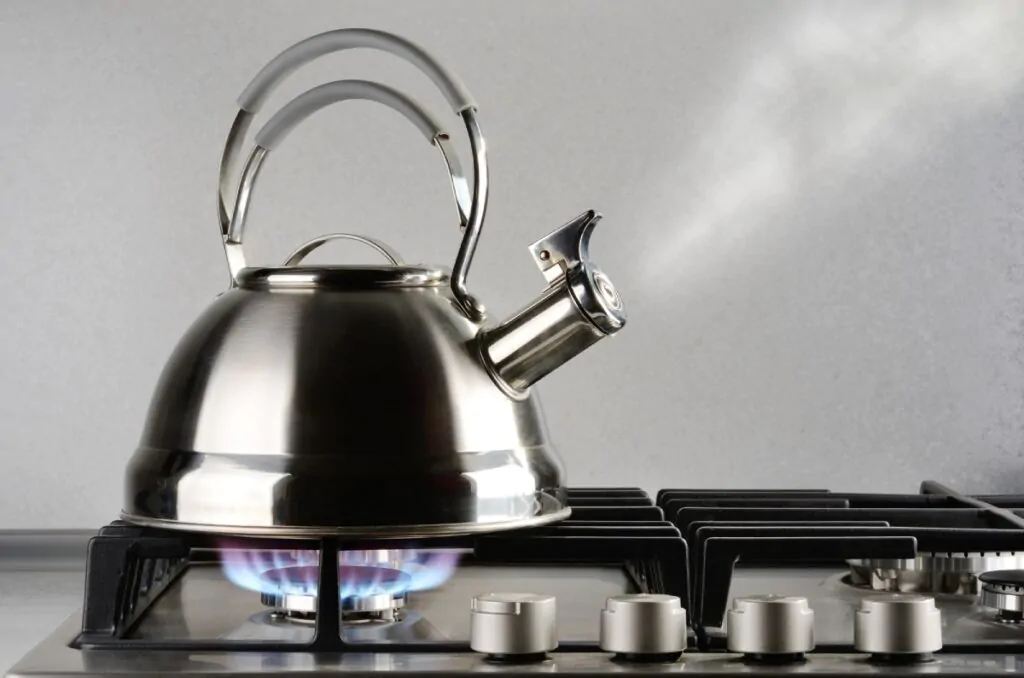Ever wonder, what is the best temp for coffee?
As a newfound coffee fiend, I can’t get enough of this delicious beverage. However, while others may be satisfied with their standard morning cup of Joe, I’ve been experimenting and sampling a wide array of coffee flavors and types.
Yes, a tall mocha with extra cream and a shot of espresso is good for waking me up, but I also enjoy the experience of sipping on a cold brew or iced coffee as well.

Because coffee can come in various styles, I asked myself, “What is the best temp for coffee?” I did some digging, and here’s what I found.
Understanding the Various Coffee Types
While there are far too many blends and beans out there to mention, coffee can be boiled down to three distinct options (pun intended). You can drink it hot, iced, or as a cold brew. Here is a breakdown of each style:
Hot Coffee
If you’ve never made your own coffee before, you add hot water to ground coffee beans. You let it steep for a little, then strain the beans out for a smooth beverage.
Iced Coffee
The process for making this variety is the same as above, but you chill the beverage and serve it over ice.
Cold Brew
Unlike hot coffee, the brewing process never uses hot water. Instead, you steep the beans for at least a few hours (sometimes overnight) to get a richer, smoother flavor profile.
Best Temp for Brewing Hot Coffee

You may think that there is a standard temperature for hot coffee, but that is not always the case. I was surprised to learn that roasters use three primary methods to create the perfect cup. Let’s break down these options:
- Boiling Water – If you crave simplicity and want to eliminate any specialized tools from your brewing setup, you’ll like this method. All you have to do is boil some water, mix it with your beans, and you’re ready to go. The benefits of using boiling water are that you can tell when it’s ready immediately, you get consistent results, and the water absorbs more flavor.
- Between 195-205 Degrees Fahrenheit – Coffee purists will tell you that there is a precise temperature for creating excellent coffee. Many of these individuals say that 200 degrees are ideal, but there is some flexibility on both sides. This method does require a thermometer, but it supposedly avoids “burning” the beans. If you notice a bitter or pungent taste in your coffee, lowering the temp a little could make a difference.
- Depends on the Beans and Brewing – One of the problems with coffee brewing is that there can be multiple variables. Are you using ground beans or grinding them yourself? Do you prefer a dark or light roast? Are you using a cheap coffee maker or a French press? All of these elements can change the results, meaning that there is no “right” answer. Instead, you want to customize your water temperature accordingly. As a rule, light roasts should be close to boiling, while dark ones thrive around the 200-degree mark.
When it comes to coffee temperatures, some of you may ask, “what about drinking?” Although some snobs may say that there is an ideal temperature at which to drink your coffee, that comes down to personal preference.
Some like it hot (such as Marilyn Monroe), while others prefer their beverage warm or at room temperature. I’m not here to judge, so drink with impunity.
Best Temp for Brewing Iced Coffee
Because you are chilling your beverage before drinking it, the rules for hot coffee don’t necessarily apply here. While a 200-degree dark roast may be delightful when hot, it could be less delicious when served cold.
For the most part, you will want to customize your brewing based on the beans. However, when it comes to serving your iced coffee, you need to be aware of what’s called the “golden ratio.” This ratio is the blend of water and coffee beans, and too much in one direction could leave a bad taste in your mouth.
Typically, with iced coffee, the issue is too much water from ice dilution. A straightforward method for avoiding this problem is to calculate your total water, including ice.
So, you’re using less water while brewing, which yields a more concentrated beverage. Then, once you serve over ice, you need to let it chill for a little while, so the ratio evens out.
Another trick is to use a cocktail shaker to chill the coffee and then serve, making it even easier to avoid a watered-down brew.
Best Temp for Cold Brewing Coffee
Although cold is in the name, some individuals use room temperature water to make “cold brew” coffees. These people are not your friends. I’ve tried these blends both ways, and trust me, you want to steep your beans in cold water.
Unless you like drinking coffee that tastes like whatever is left in the office machine at the end of the day.
So, what is the ideal temperature for cold brews? Around 40 degrees Fahrenheit, or the average temperature inside a refrigerator.
This method will take some time (about 14 to 16 hours), but it is so much richer and flavorful. I prefer cold-brewed coffee whenever I have the foresight to chill enough in my fridge. Otherwise, I’ll settle for iced coffee.
The Final Word on the Best Temp for Coffee
As you can see, there are many options for making an excellent cup of Joe. If you like it hot, I recommend around 200 to 212 degrees (boiling), but you may want to experiment to find the right temperature.
If you’re making cold brew, I highly suggest avoiding room temperature and stick to 40 degrees instead. Now that you have this knowledge, go forth and drink merrily!
Want to learn more?
FAQs on the Best Temp for Coffee
Do I need to use a specific blend to make cold-brew coffee?
While you can use any coffee beans for this process, I’ve found that blends designed for cold brewing are much better. I also prefer to grind my own beans, but I am a bit extra.
My coffee tastes bitter, am I burning it with boiling water?
The great thing about coffee is that there are so many ways to make it. If your beverage is too bitter, try lowering the temp a little or switch to a darker roast. Lighter blends tend to be more bitter, so that could be the culprit.
Can I save my hot coffee for later?
Yes, but you never want to reheat chilled coffee (trust me). Instead, I recommend making iced coffee with any leftovers.
